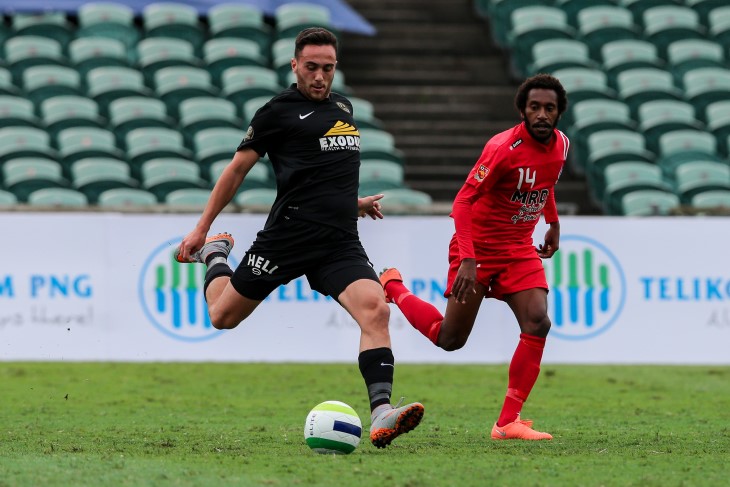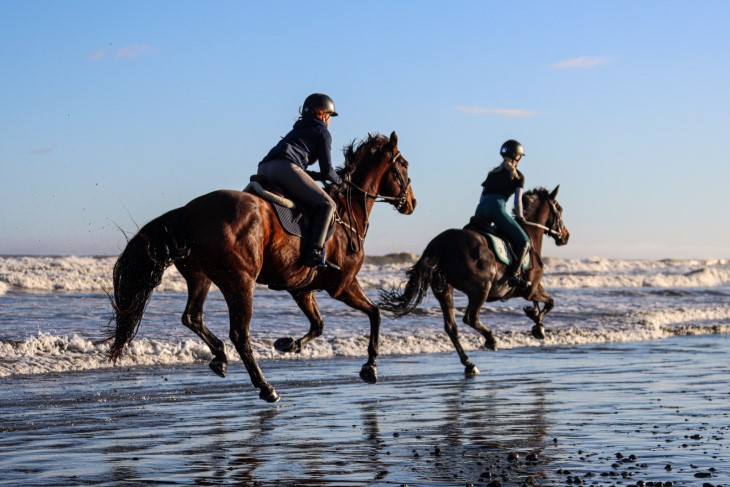Taking on concussion head-on
Martin Than is passionate about improving outcomes for New Zealanders dealing with concussion. He is the Project Manager of Wayfind, a game-changing software tool which incorporates best practice guidelines for how a patient is treated.
When Martin Than was asked if he was excited to take his concussion software tool Wayfind to Canterbury and then Aotearoa, he replied: “What about the world?”
Martin isn’t joking. His passion to get Wayfind to as many people as possible is infectious. He wants to see the way concussion is identified and managed in New Zealand changed significantly.
Martin and his team will be able to make more progress in addressing this issue after having been named as one of the recipients of the ACC Innovation Fund.
Innovation Fund: Successful recipients announced
The fund was created to develop innovative programmes that will help New Zealanders recover from injury faster. The calibre of the submissions was so impressive, we increased our funding to support more initiatives that we initially planned for.
Each recipient has been awarded $100,000 to support their innovative projects which will help improve outcomes for injured people,
“Head injury is a common problem,” says Martin who works for Te Whatu Ora – Waitaha Canterbury – formerly the Canterbury District Health Board (CDHB).
“The downstream impacts of concussion have been under-appreciated and increasingly understood to be significant.
“There is considerable room for improvement in the way in which patients with concussive symptoms are identified,and also how they are referred for follow-up treatments, which have been proven to improve their outcomes.”
Martin says Wayfind provides assistance in this area. “It will make it easier for health professionals in hospitals to identify those at risk of being affected by concussion-like symptoms. It will also make it easier to refer for follow-up treatments.”
He says the support provided by the Innovation Fund grant will allow the project to take place.
“It’s fantastic that ACC are taking the initiative to invite health providers to identify areas where improvements can be made.”
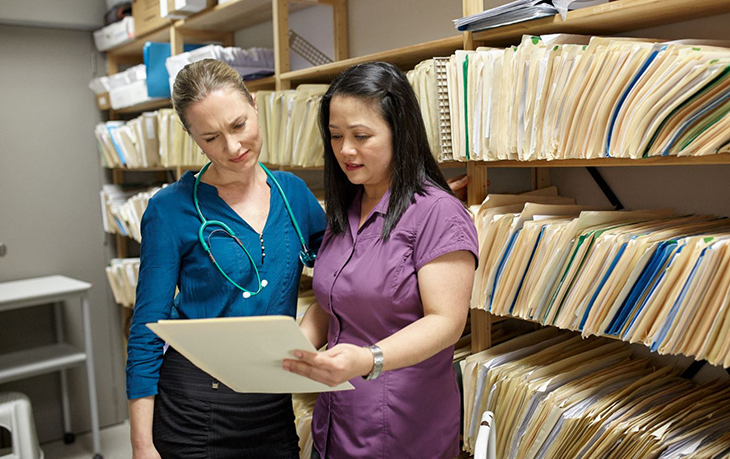
Wayfind gives the clinician a recommendation. They will use that information to support their judgement and decision.
A dynamic system
Wayfind is a software tool. It incorporates best practice guidelines from the user interface backwards.
Martin says they wanted to create a tool which decreases the workload for medical professionals. The tool prompts the hospital clinician to do something about the patient’s concussion rather than having to look for it.
The Wayfind system is dynamic. It changes depending on the parameters the medical professional enters for the patient.
It will help to identify concussion which is an invisible injury and often gets missed, especially when the patient presents with other trauma/significant injuries.
“You wouldn’t go straight back to playing sport or onto the building site as a builder, if you sprained your ankle. You would know that it would continue to get worse and not get better.
“The same applies to a head injury. You feel OK, and you push on and then you just don’t get better. We need to change that.”
“A world leader in this space”
Alice Theadom is a Professor at the Auckland University of Technology (AUT). She has done extensive research into mild traumatic brain injuries (mTBI) which has fed into the creation of Wayfind.
“She is world-leading in this space,” says Martin. “She has done a lot of work in developing the Wayfind tool and ensuring that best practice is employed for identifying people with concussion.
“To say that this person needs a follow up treatment and get them the help and support they need.”
Martin believes the current guidelines for accessing a concussion service are too limited.
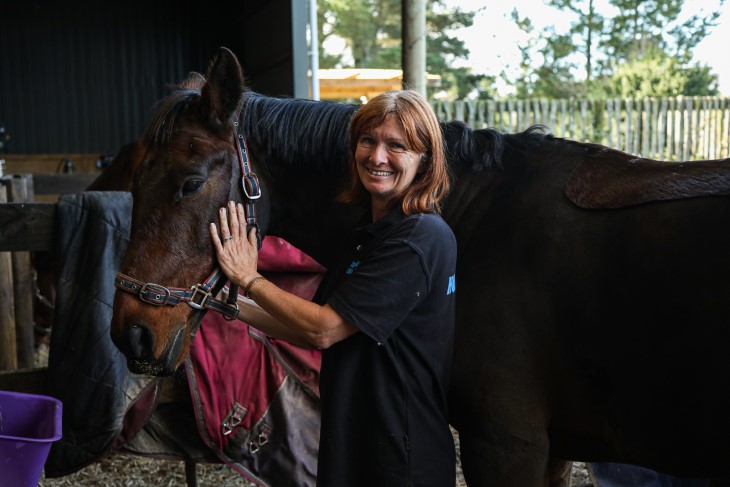
It took Lenka Fields two years to recover from a concussion.
“Wayfind gives you a recommendation and the likelihood of the patient having ongoing problems. It provides specific guidance to the what the clinician needs to do.”
The clinician will use that information to support their judgement and decision. When the person shows the signs of a concussion, the system would pre-populate with a recommendation for a referral to a Concussion Clinic'.
It’s important to note that not everyone who suffers a concussion requires a referral to a concussion service. At the end of the assessment, the medical professional can export the patient’s record which completes the medical written record.
“It saves a huge amount of time because everything they need to know is in the tool. And it is taking them through the best practice guidelines.”
“The sector exceeded our expectations”
Megan Main is our Chief Executive. She says the goal for the Innovation Fund was to create an opportunity to reward and support innovation that will help people recover faster from injury.
“We know there is a huge number of innovative ideas out there that we could learn from and potentially help grow sustainably,” says Megan.
“We asked for ideas that will help us accelerate our Health Sector Strategy, and the sector exceeded our expectations. We’re looking forward to working in partnership with all five recipients.”
Megan wants to thank the more than 100 health organisations that applied for the Innovation Fund.
“We need to recognise the time and effort that went into each submission and their contribution towards making this fund a success,” she says.
The ideas we received covered a range of proposals. These included programme delivery re-design/process changes. They also included holistic rehabilitation programmes designed specifically for Māori, and data integration platform proposals.
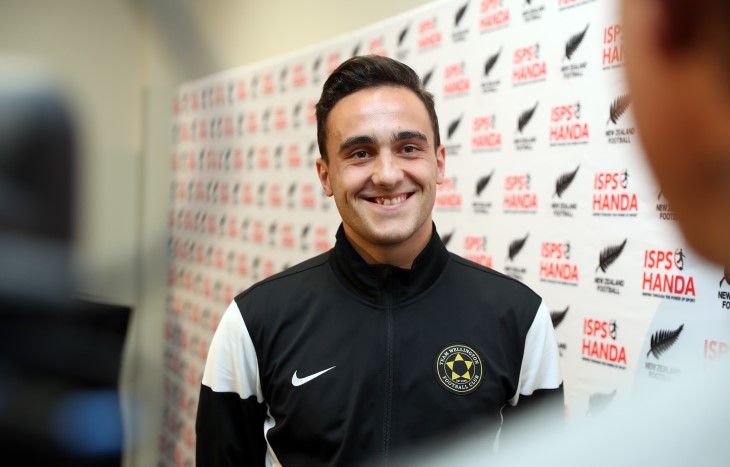
Tom Jackson suffered a nasty concussion while playing football.
The list of symptoms is extensive
Martin says people who have a concussion suffer ongoing symptoms that really impact their quality of life.
They have headaches, they find it difficult to concentrate, they get dizzy. There is a whole range of symptoms which affect their livelihood. When they turn their head, their head spins which affects their ability to drive.
There may also be psychiatric problems such as anxiety or depression and the list goes on. Martin says we are not aware of the issues people with mTBI are suffering and also how to manage them.
“So they’re labelled as a slacker or they’re fired or are getting mental health treatment they don’t need,” he says.
“Head injury is an increasingly prevalent problem in our society. When we do identify those people who have had a concussion, there is a perception in the medical profession that we can’t do much to help them.”
He says the status quo has been the same for decades. And that means many people are living with the effects of concussion.
“You were told to harden up and get back on the field or complete the project that is due by tomorrow,” he says. Over the past decade, there has been an increased awareness of the downstream effects of concussion.
He says Concussion Clinics have come a long way in the past few years.
“They do complex cognitive and physiological testing. They can then actually provide treatment for patients and help them improve,” he says.
“The most fundamental treatment of all is rest. The more aware we can be of a person’s issues, the better we can treat them.”
It is important to note, research show that relative rest and progressive cognitive and physical loading is the best treatment for recovery from a concussion. Martin says Wayfind can create fundamental change for our health system.
“A lot of people will think this is just another electronic tool, but it’s not. Wayfind is about making it easy for the clinician. It helps to identify the patients’ needs to provide extra support, how to do it, and what to do.
“There is no doubt that when we apply Wayfind, this is going to make a big difference.”
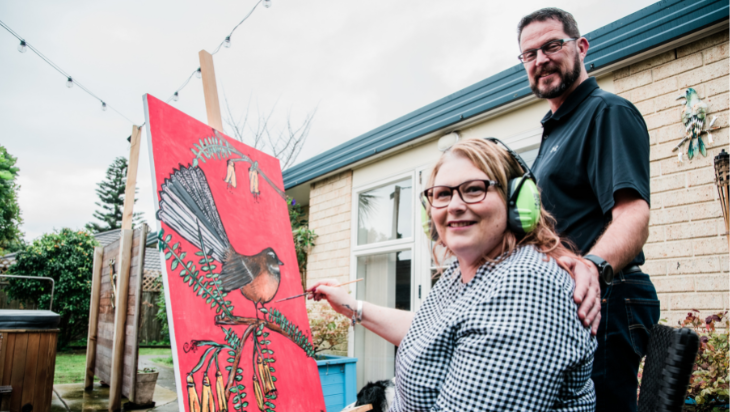
Christina Nicol suffered a concussion while on holiday in the Cook Islands.
ACC encourages everyone to understand the Four Rs of Concussion Management
- Recognise (the signs and symptoms of concussion)
- Remove (the person from play)
- Refer (to a medical doctor to confirm diagnosis and provide treatment)
- Recover (before returning to school/work and sport)
For more information on the Innovation Fund:




